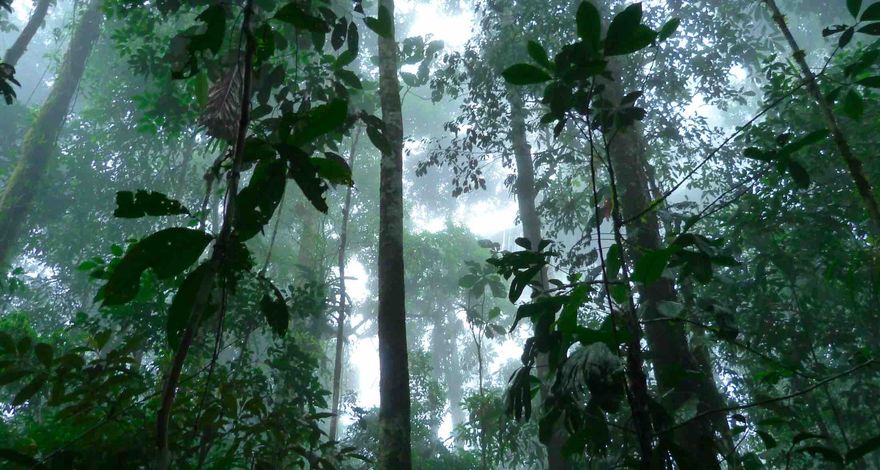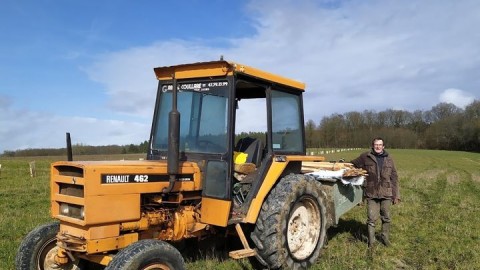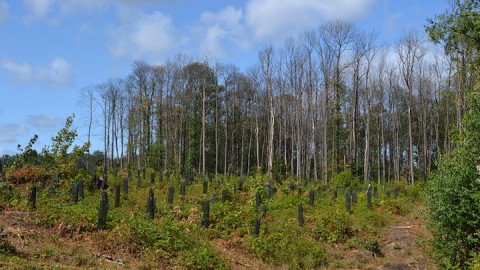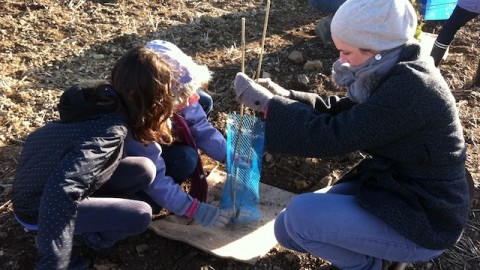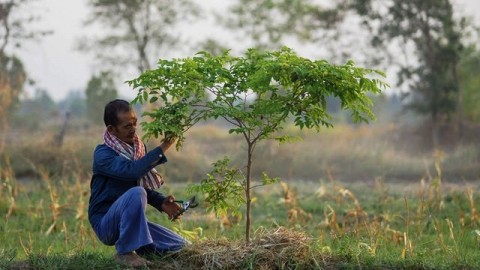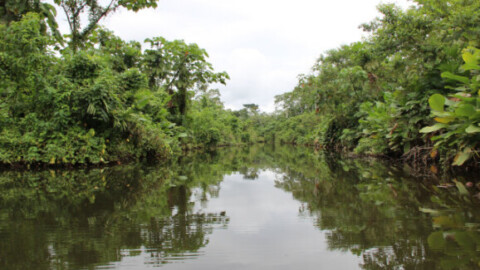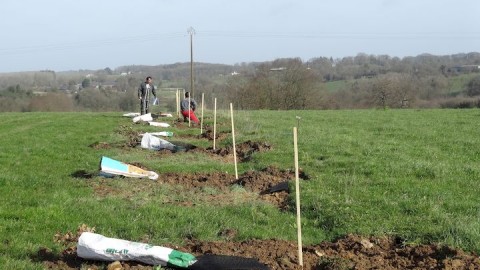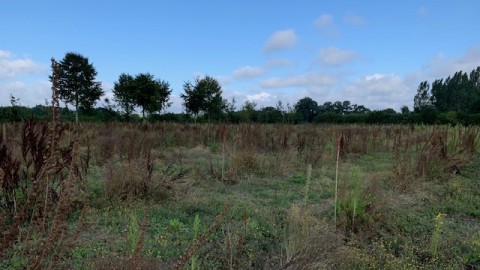Background & challenges
The region is suffering a loss of biodiversity in its primary forest. Indeed, the indigenous communities – 57% of Kichwas Indians in the region – exploit around 20 species of high-value timber trees, resulting in selective deforestation of this tropical forest. The aim is to plant these same trees in plots to provide their smallholders with reserves within easy reach and so protect the primary forest.
In 2018-2019, 18 ‘pilot’ families will benefit from the planting of these 5,000 trees. Between 2019 and 2020, these numbers will grow to 40 families per year and 10,000 trees planted annually.
This planting action forms part of a global project – led by the association Ishpingo with technical and financial support from the GoodPlanet Foundation – to reforest degraded areas by introducing a sustainable agroforestry model.
Since 2014, over 68,000 trees have already been planted (of which 30,000 timber and 38,000 fruit trees) on 123 hectares. Through this action, 112 growers have received training in sustainable agroforestry and a structure for the purchasing and transformation of fruit has been set up. Other operations are planned for 2018 to 2020 with the planting of 50,000 extra fruit trees.
Project type

Forest and agroforestery programme
Beneficiaries

18 farmers (8 women and 10 men)
Number of trees

5,000 trees planted, of which 4,000 are expected to remain over time, i.e. 200 trees per family
Species planted

Forest trees, softwood lumber
A wide range, with 15 species : pinga (Aspidosperma sp.), cedrillo (Cabralea canjerana), cedro (Cedrela odorata), chuncho (Cedrelinga cateniformis), arenillo (Erisma uncinatum), huambula (Minquartia guianensis), balsamo (Myroxylon balsamum), canelo anis (Nectandra sp.), le canelo (Ocotea sp. Nectandra sp.), caoba betiada (Plathymiscium estipulare), avio (Pouteria sp.), mindal (Simira sp.), ahuano (Swietenia macrophylla), pechiche (Vitex cymosa), tamburo (Vochysia leguiana)
Partner

GoodPlanet Foundation together with Ishpingo
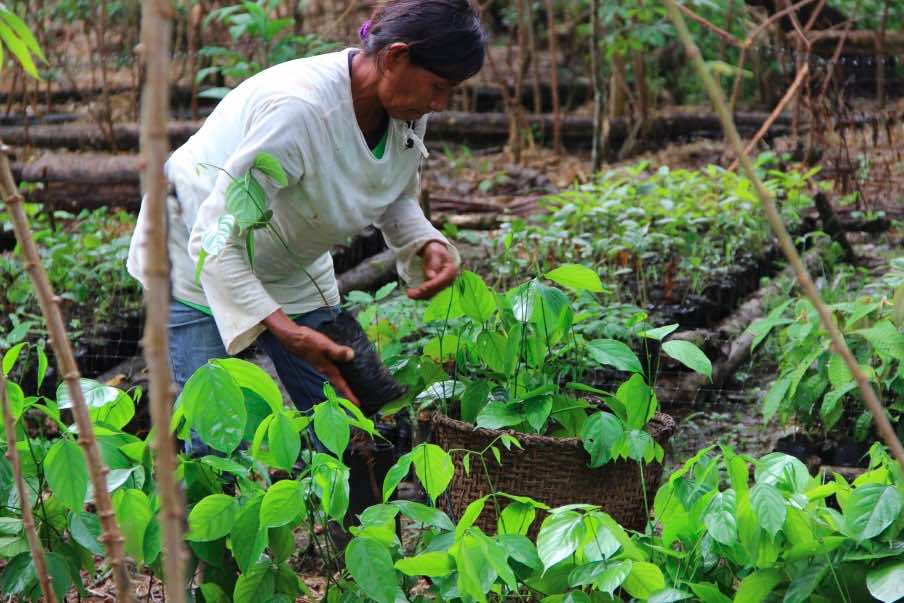
Works timeline
The GoodPlanet Foundation pre-financed the first operations in order to ensure that work began in nurseries at the end of 2018 and that they could be planted 6 to 9 months later, in 2019.
Breakdown of activities:
- Jan-March 2018: Making organic fertiliser
- March-April 2018: Preparing seed bags
- April-August 2018: Purchase and gathering of seeds or seedlings
- May-Sept. 2018: Bagging the seedlings
- March 2018-Feb. 2019: Tree nursery maintenance
- Sep. 2019-Feb. 2020: Transporting saplings to farmers and tree planting
- Dec. 2019-Dec. 2021: Monitoring and maintenance of farmers’ plots (2 to 3 visits per year for each farmer)
- Sep. 2019-Dec. 2021: Training farmers (on site, at each visit)
Planting partner
Teaming up with NGOs or medium-sized, local social enterprises, the Foundation develops projects in line with international solidarity and public interest.
With this end foremost in mind, Action Carbone Solidaire provides these populations with both financial and operational support to help boost their capacities.
Ishpingo is the local association implementing the project, with financial and operational backing from GoodPlanet.
Budget
The total sum to be raised amounts to €20 400, including 80% for field operations and 20% for A Tree for You for collection, monitoring and communication costs.. The project will run through into 2020 and after, with other families, for an overall budget of €81,600 for these two years.
Detailed cost for one lasting tree planted = €5.1, of which:
- Nursery: €1
- Planting: €0.6
- Training: €0.5
- Technical monitoring: €1
- Project monitoring: €1
- A Tree for You collection, monitoring and communication costs (20%): €1
They donated to support this project in 2019:




